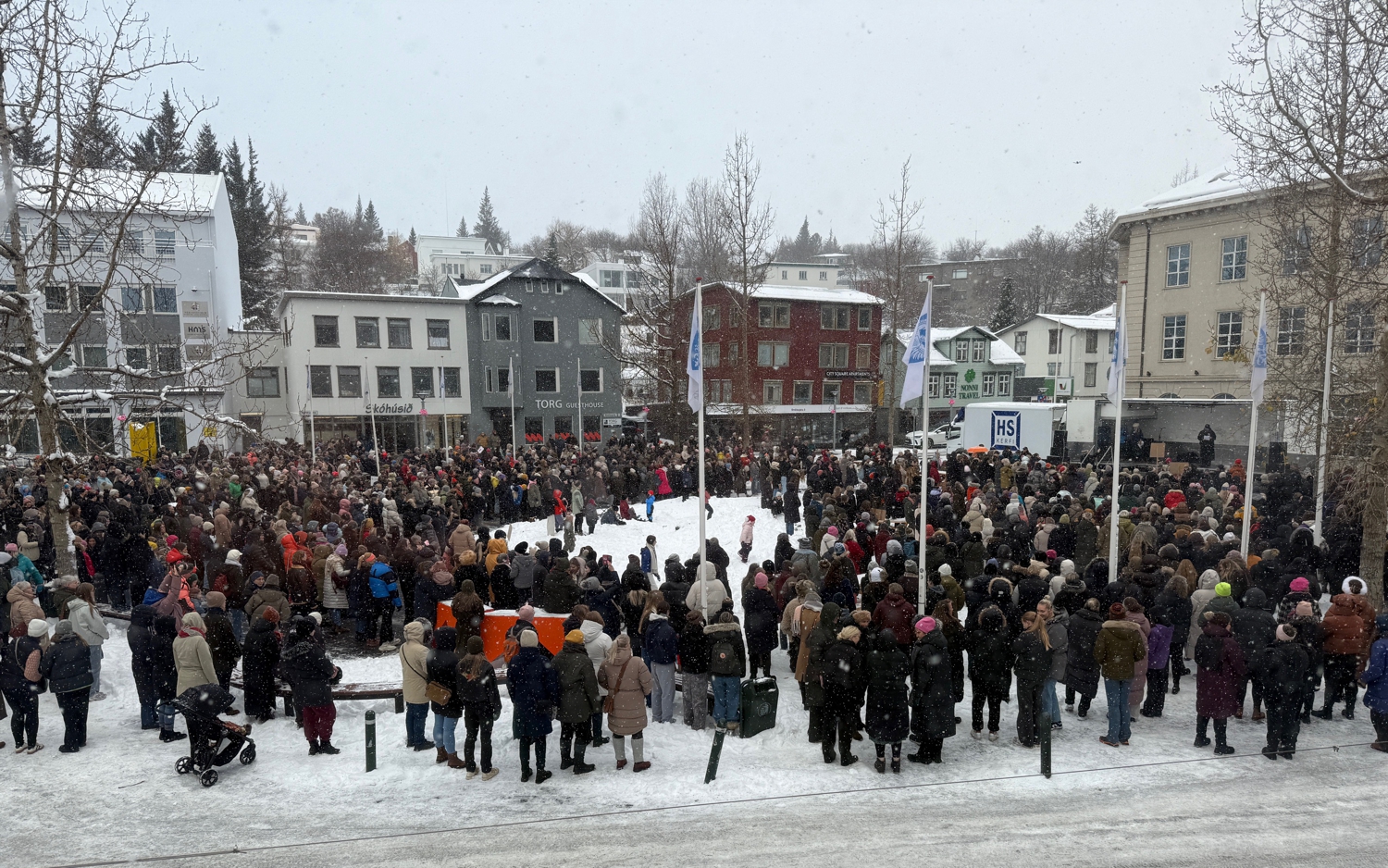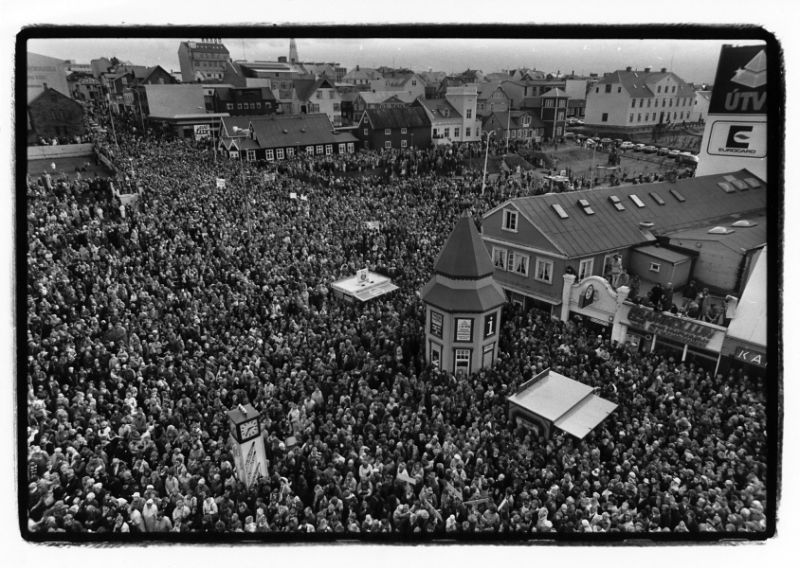 From Akureyri to Reykjavík, women across Iceland unite once again to demand real equality.
From Akureyri to Reykjavík, women across Iceland unite once again to demand real equality.
Today, October 23 2025, women across Iceland are taking part in Kvennafrídagurinn, The Women’s Day Off, a collective strike reminding society that gender equality remains unfinished work. From Ráðhústorg in Akureyri, where crowds gathered this morning in solidarity, to Arnarhóll in Reykjavík, where thousands are expected to rally later today, and across towns and villages throughout the country, the message echoes clearly: Iceland’s women are still not done fighting for full equality.
From the 1975 strike to today
The first Women’s Day Off took place on October 24 1975, when 90% of Icelandic women stopped working, both paid and unpaid, for a single day. Offices, schools, shops, and even newsrooms came to a standstill as women refused to cook, clean, or work for wages. That strike changed Icelandic society: the event led to new equality legislation and helped pave the way for Vigdís Finnbogadóttir, the world’s first democratically elected female president.
Half a century later, the spirit of 1975 lives on.
 Fifty years later, same energy, new challenges
Fifty years later, same energy, new challenges
Half a century on, Iceland continues to rank as one of the world’s most gender-equal nations. Yet today’s strike shows that the fight is not over.
- The gender pay gap persists across sectors.
- Women still bear the bulk of unpaid care work.
- Gender-based violence and harassment remain widespread concerns.
This year’s theme, “Við stöndum saman” — “We stand together”, underlines that progress requires unity, not complacency.
A nationwide day of action
From Reykjavík to Ísafjörður, Egilsstaðir to Vestmannaeyjar, and Akureyri to Húsavík, women, non-binary people, and allies are gathering for rallies, marches, and community events. In some towns, church bells rang at the start of the strike; in others, cafés closed for the day to show support.
The movement has once again reached all corners of Iceland, proving that the message of equality belongs to everyone, not just to the capital.
Voices from Akureyri
In Akureyri, women, girls, and allies gathered at Ráðhústorg this morning, holding banners and chanting for equal pay, safety, and recognition of unpaid care work. The crowd was multigenerational, teenagers alongside retirees, teachers next to nurses, artists, and entrepreneurs.
“We’re proud of how far Iceland has come,” said one participant, “but pride doesn’t pay the bills, and it doesn’t erase the violence or the invisible labour that women still carry.”
The capital gathers
Later today, attention will turn south as thousands are expected to fill Arnarhóll in Reykjavík, continuing the nationwide call for equality. Many workplaces and schools have adjusted schedules or even closed, acknowledging the symbolic and social impact of the day.
Still a gap to close
Despite Iceland’s global reputation as a leader in gender equality, women continue to earn less than men, are under-represented in certain industries, and perform the majority of unpaid domestic and care work. Reports of gender-based violence remain a pressing concern, reminding citizens that equality is not achieved by statistics alone but through daily practice and policy.
A living legacy
Fifty years after the first Women’s Day Off, the strike remains one of Iceland’s most powerful traditions, not of absence, but of presence. When women stop working, the entire country pauses to notice.
As the voices in Akureyri, Reykjavík and all over the country rise together once again, the message is clear: equality must be lived, not just celebrated.
